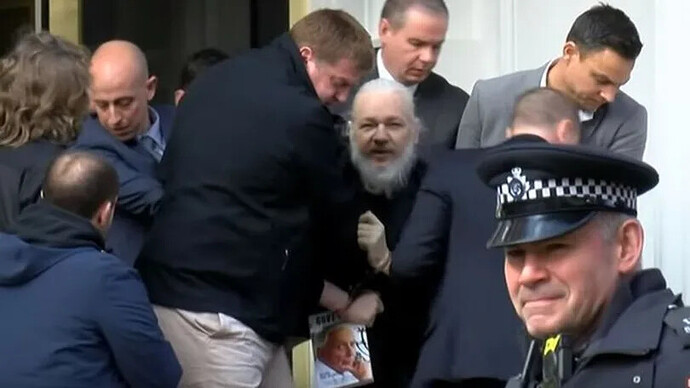Spain’s National High Court has summoned former CIA director and US Secretary of State Mike Pompeo to give testimony on a massive spying operation he allegedly orchestrated against Julian Assange and a related Trump administration plot to kidnap or assassinate the WikiLeaks publisher in London.
The summons, revealed by ABC Spain last Friday, was issued by National High Court Judge Santiago Pedraz. It reportedly compels Pompeo, along with former US National Counterintelligence and Security Center director William Evanina to testify before a Spanish court, either in person or by video link, later this month.
Read more.
The article below is from 22 December 2021. The title is misleading because Donald Trump does not exactly, straight-out reveal why he did not pardon Julian Assange; but, it does say:
"He then described their [Assange v. Snowden] separate situations as, “sort of a spy deal going on” and “somebody that’s exposing real corruption,” concluding he felt “a little bit more strongly about one than the other," but didn't specify which.
“There [were] some spying things, and there [were] some bad things released that really set us back and really hurt us with what they did,” he said, according to the Daily Wire.
"somebody that's exposing real corruption" sounds like it applied to Snowden; leaving the former statement "sort of a spy deal going on" applying to Assange. Those "in the know" would know for sure. In the video, Donald Trump said he decided to let the courts work it out. Unlike Snowden, no one nation has come out to protect Assange and protect him from harm.
Donald Trump Reveals Why He Didn’t Pardon Julian Assange
Donald Trump came under enormous pressure toward the end of his presidency to pardon Wikileaks founder Julian Assange, which he ultimately did not do, leaving many of his pro-free speech supporters confused.
UK approves Julian Assange’s extradition to the US over spying charges
WikiLeaks publisher Julian Assange, held in a London prison since 2019, now has 14 days to appeal the Home Secretary's decision before being extradited to the U.S. to face espionage charges.
Britain’s Home Secretary Priti Patel has approved the extradition of WikiLeaks co-founder Julian Assange to the U.S. where he faces charges of espionage in relation to the release of millions of classified government documents.
The U.S. has sought Assange’s extradition for over a decade in order to put him on trial over 17 charges of espionage and one of computer misuse relating to his publication of thousands of classified documents and video footage, some of which shows U.S. troops killing civilians during the Iraq war.


